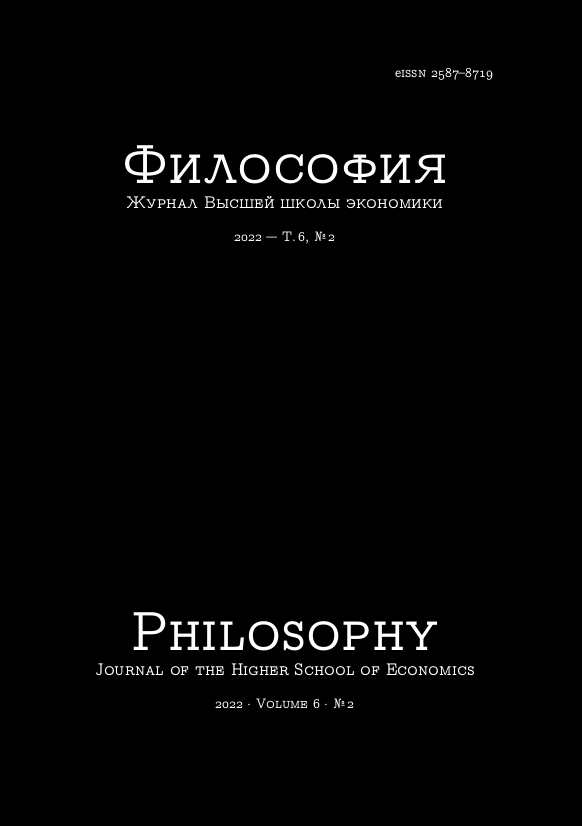Johanna Seibt's General Process Theory
Abstract
The article addresses Johanna Seibt's General Process Theory. Critique of substantialism or “myth of substance” as a set of presuppositions is presented. Substantialist presuppositions are demonstrated to hamper an adequate solution of persistence in time, partly because this issue tends to be considered only with regard to objects — persons or things. A contradiction between the change of attributes of an object with Leibniz's law of identity of indiscernibles is shown to be based on additional substantialist principles, which altogether constitute the aporia of change. The principal theories of persistence — endurantism and perdurantism — are both shown to lead to contradictions. Perdurantism seemingly rejects the idea of substance when it construes objects as composed of temporal parts. However, these temporal parts are interpreted based on some substantialist presuppositions. Substantialism rests on particularism (even though historically, there were also non-particularist interpretations of substance); particularism, in turn, is based on the universals-particulars dualism. Particularism consists of a set of presuppositions which lead to contradictions, and it does not manage to solve the issue of individuation. Specifically, identifying particulars with individuals and abstract with general should be jettisoned. This will permit to admit the existence of non-particular individuals. The General Process Theory is outlined in terms of which processes are non-particular individuals based on the model of subjectless activities. Finally, a solution to the persistence problem in terms of General Process Theory is outlined.
Downloads
Copyright (c) 2022 Philosophy. Journal of the Higher School of Economics

This work is licensed under a Creative Commons Attribution-NonCommercial 4.0 International License.






